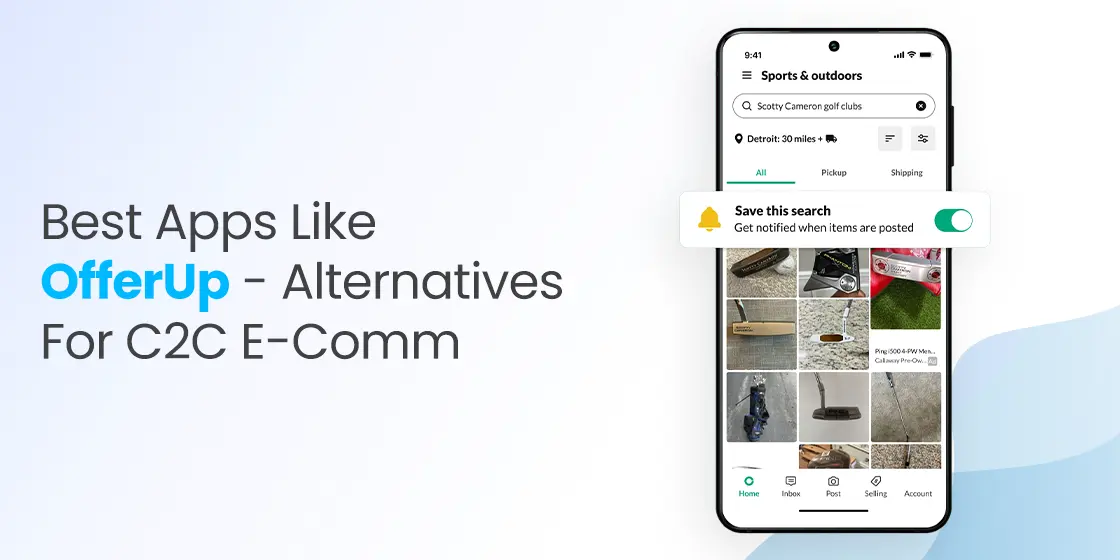Table of Content
Discover What Are Some of the Best Apps Like OfferUp to Replace It
Looking for the perfect marketplace to buy and sell your items? While OfferUp has established itself as a popular choice for local trading, it’s certainly not your only option. Whether you’re tired of OfferUp’s fees, want access to different buyers, or simply prefer a different user experience, there are many excellent alternative apps like OfferUp waiting to be explored.
The world of peer-to-peer selling has exploded in recent years, with apps like OfferUp transforming how we declutter our homes and find great deals. From fashion-focused platforms that rival traditional retail to general marketplaces that connect entire communities, these alternatives offer unique features that might better suit your selling style. Some prioritize safety with verified profiles, others focus on specific niches, and many provide completely different fee structures that could save you money.
Ready to discover your next favorite selling platform from professional mobile app development services? Let’s dive into the best apps like OfferUp that are revolutionizing the way people buy and sell everything from electronics to vintage clothing.
Why Look for OfferUp Alternatives?
Before exploring specific apps like OfferUp, it’s worth understanding why sellers are branching out from this popular platform. OfferUp charges a fee of 12.9% of the selling price or $1.99, whichever is greater, for shipped items, which can significantly impact your profits on smaller sales. Additionally, the competition on OfferUp has intensified, making it challenging for individual sellers to stand out among thousands of similar listings.
Many users also find that different platforms perform better for specific categories. While OfferUp excels in general household items and electronics, specialized platforms often yield better results for clothing, collectibles, or handmade goods. The user base varies significantly across platforms too—some attract younger buyers interested in trendy items, while others appeal to collectors seeking vintage pieces.
Safety concerns also drive users to explore alternatives. While OfferUp offers pre-approved meeting spots, some platforms provide more robust verification systems or different transaction methods that reduce in-person meeting requirements. Understanding these factors helps explain why savvy sellers often use multiple platforms simultaneously for their eCommerce micro SaaS needs.
Turn your concepts into mobile apps brimming with advanced features. From inception to deployment, make a distinct impact in the market.
Contact Now
OfferUp Alternatives for Specific Categories
As we mentioned above, different product categories often perform better on specialized platforms rather than general apps like OfferUp. Clothing and fashion accessories typically sell faster on Poshmark, Vinted, or Depop, where buyers specifically browse for style and brands. Electronics find engaged buyers on Swappa, where verification and detailed specifications matter most.
Collectibles, vintage items, and unique goods often perform better on eBay, where global reach connects sellers with passionate collectors willing to pay premium prices. Handmade items and craft supplies find their audience on platforms like Etsy, while books and media might sell more quickly on specialized platforms like ThriftBooks or Decluttr.
Understanding where your specific items are most likely to find interested buyers can dramatically improve your selling success. Many experienced sellers maintain active accounts on multiple platforms, cross-posting items to maximize exposure while tailoring their approach to each platform’s unique culture and buyer expectations.
Let’s take a look at some of the top mobile and web application examples of apps like OfferUp that serve as suitable alternatives.
Facebook Marketplace: The Social Giant’s Answer
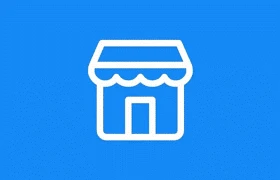
Facebook Marketplace stands as one of the most powerful alternatives to apps like OfferUp, leveraging the social media giant’s massive user base of over 800 million monthly marketplace users. Unlike OfferUp, Facebook Marketplace doesn’t charge fees for local sales, allowing sellers to keep 100% of their profits when buyers pick up items in person.
The platform’s integration with Facebook profiles provides an additional layer of trust and transparency. When potential buyers contact you, you can view their Facebook profile, see mutual friends, and get a better sense of who you’re dealing with. This social connection often leads to more successful transactions and reduces the anxiety many people feel when meeting strangers for exchanges.
Facebook Marketplace also offers nationwide shipping options for eligible items, though this feature comes with selling fees similar to other platforms. The AI-powered curation system shows your listings to users most likely to be interested, potentially reaching buyers you might never connect with on other platforms. The seamless integration with Facebook Groups also allows you to cross-post items to local buy-and-sell communities, dramatically expanding your reach.
Mercari: The Shipping-First Marketplace
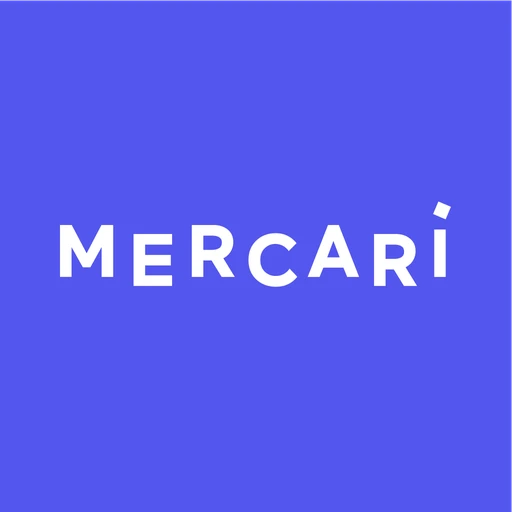
Mercari has carved out a significant niche among apps like OfferUp by focusing primarily on shipped sales rather than local meetups. With over 20 million monthly users, this platform offers a streamlined selling experience that’s particularly appealing to those who prefer avoiding in-person transactions altogether.
The platform charges a 10% selling fee, which is lower than OfferUp’s shipping fees, and provides prepaid shipping labels for most sales. Sellers can list items across virtually any category, from electronics and home goods to clothing and collectibles. The authentication process for higher-value items adds credibility, while the three-day inspection period gives buyers confidence in their purchases.
What sets Mercari apart from other marketplace apps is its simplicity and mobile-first design. The listing process takes just minutes, and the platform handles most of the transaction complexity. Payment is held securely until the buyer confirms receipt, protecting both parties. The rating system builds seller credibility over time, potentially leading to higher sale prices and faster transactions.
Poshmark: Fashion-Forward Selling

For clothing and fashion accessories, Poshmark remains one of the premier alternatives to general apps like OfferUp. This social marketplace combines e-commerce with social networking, creating a unique community where fashion enthusiasts buy and sell with genuine passion for style and brands.
Poshmark charges a 20% commission on sales over $15, which might seem high, but the platform provides substantial value through its active community and marketing features. Sellers can participate in virtual “Posh Parties” themed around specific brands or styles, gaining exposure to thousands of potential buyers simultaneously. The social aspects—following, sharing, and commenting—help build relationships that translate into sales.
The platform handles all shipping logistics with flat-rate pricing, making it incredibly convenient for sellers. Authentication services for luxury items ensure buyers feel confident making significant purchases, while the three-day return window protects against most disputes. Poshmark’s focus on fashion means your clothing items compete with others in the same category rather than getting lost among furniture and electronics listings.
Vinted: Zero-Fee Fashion Marketplace

Vinted represents a refreshing approach among apps like OfferUp by charging sellers absolutely no fees. This European-founded platform has gained significant traction in the US market, particularly among younger users looking to buy and sell trendy, sustainable fashion at affordable prices.
The platform’s fee structure puts all costs on buyers, who pay a small protection fee that covers secure payment processing and buyer protection. For sellers, this means keeping 100% of the listing price, making it an attractive option for those selling lower-priced items where other platforms’ fees would significantly impact profits.
Vinted’s community focuses heavily on sustainable fashion and circular economy principles. The platform encourages detailed descriptions and honest condition assessments, creating a marketplace where buyers know exactly what they’re purchasing. The integrated messaging system and streamlined shipping process make transactions smooth, while the younger demographic often seeks unique, vintage, or hard-to-find pieces that command premium prices.
Craigslist: The Original Local Marketplace
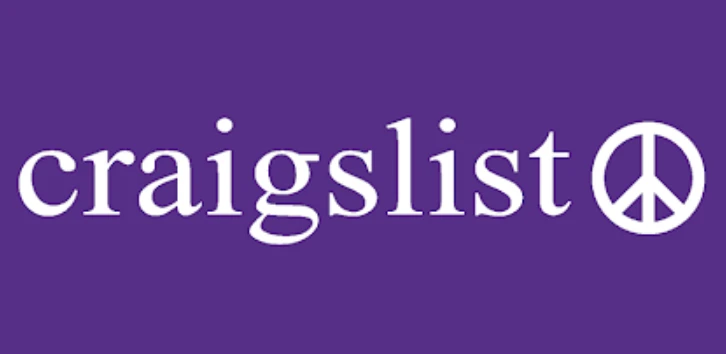
Despite being one of the oldest online marketplaces with a dated web app design, Craigslist remains a viable alternative to modern apps like OfferUp. The platform’s no-frills approach and complete lack of selling fees make it particularly appealing for high-value items where percentage-based fees would be substantial.
Craigslist’s anonymity can be both an advantage and disadvantage. While you don’t need to share personal information upfront, this also means less transparency about potential buyers. However, for certain categories like vehicles, tools, and furniture, many buyers still turn to Craigslist first due to its comprehensive local coverage and search functionality.
The platform’s simple interface might look dated, but it loads quickly and works reliably across all devices. Local focus means you’re dealing with nearby buyers, reducing shipping complications and enabling easier negotiations. For sellers comfortable with its old-school approach, Craigslist often delivers results with minimal time investment and zero platform fees.
Swappa: Electronics Specialist

When selling phones, tablets, laptops, or gaming equipment, Swappa offers a specialized alternative to general apps like OfferUp. This platform focuses exclusively on used tech, providing verification services and market pricing data that benefits both buyers and sellers.
Swappa’s verification process ensures all devices are functional and not stolen, blacklisted, or financed. This creates a trusted marketplace where buyers pay premium prices for confidence in their purchases. The platform charges a modest fee only when items sell, and detailed market data helps sellers price competitively.
The platform’s specialization means your tech items reach buyers specifically looking for electronics rather than casual browsers. Categories include detailed specifications, carrier information, and condition ratings that tech-savvy buyers expect. For anyone regularly upgrading devices or dealing in electronics, Swappa often yields better results than general marketplaces.
eBay: The Auction and Fixed-Price Hybrid
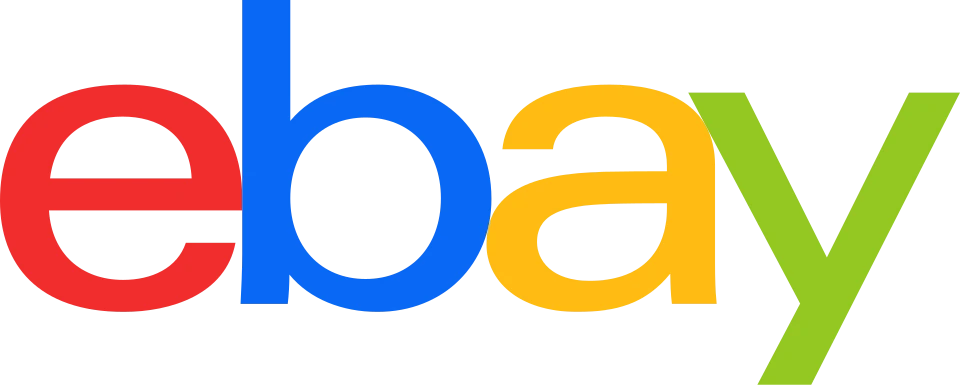
As one of the pioneers in online marketplaces, eBay continues to serve as a powerful alternative to apps like OfferUp for reaching both local and international buyers. The platform’s auction format can drive competitive bidding that results in higher sale prices, particularly for collectibles, vintage items, or hard-to-find goods.
eBay’s massive global reach means items can find buyers worldwide, not just in your local area. The platform offers both auction-style and fixed-price listings, giving sellers flexibility in how they want to sell. Detailed feedback systems and buyer protection policies create trust, while eBay’s search algorithms help qualified buyers find your items.
The fee structure includes listing fees and final value fees, which can add up, but the potential for higher sale prices often compensates. eBay’s shipping integration, international selling capabilities, and established buyer base make it particularly valuable for unique items, collectibles, or products with niche appeal that might not sell quickly on local platforms.
Depop: Gen Z’s Fashion Marketplace

Depop has emerged as the go-to platform for younger sellers and buyers interested in unique, vintage, and trendy fashion items. This app combines social media aesthetics with marketplace functionality, creating an Instagram-like shopping experience that resonates with users seeking authentic, individual style.
The platform’s visual focus means high-quality photography is essential, but items that photograph well often command premium prices. Depop’s international reach connects sellers with buyers worldwide, particularly valuable for vintage or unique pieces that appeal to global fashion enthusiasts.
Sellers can build followings similar to social media influencers, with popular accounts driving consistent sales through engaged audiences. The platform’s demographic skews young and fashion-forward, making it ideal for trendy brands, vintage finds, or unique pieces that might not appeal to mainstream marketplace users. Success on Depop requires understanding the platform’s culture and aesthetic preferences.
5miles: Local Community Focus
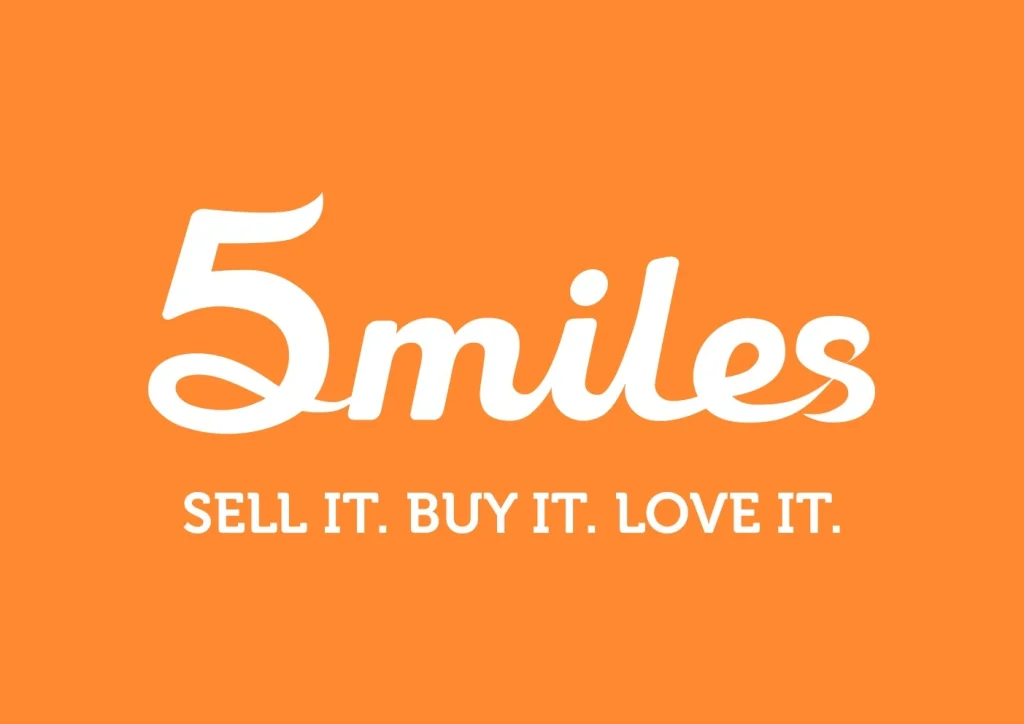
5miles positions itself as a community-centered alternative to apps like OfferUp, emphasizing local connections and neighborhood-based selling. The platform’s name reflects its focus on connecting people within a five-mile radius, creating opportunities for easy pickup and community building.
The app allows various listing types, from traditional sales to services and rental opportunities. This flexibility makes it appealing for sellers looking to monetize different aspects of their lives, whether that’s decluttering possessions or offering local services like tutoring or pet care.
While 5miles charges fees for premium listing features, basic listings often remain free or low-cost. The local focus means less shipping complexity and more opportunities for negotiation and relationship building. For sellers in active metropolitan areas, 5miles can provide access to engaged local buyers who prefer supporting community members.
Bonanza: The eBay Alternative
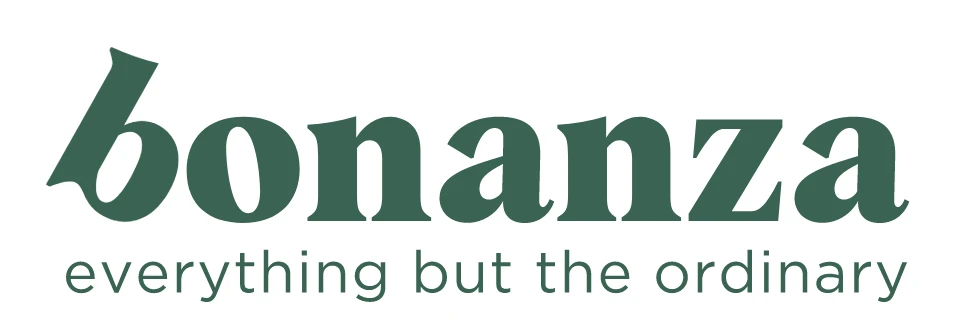
Bonanza markets itself as a more seller-friendly alternative to both eBay and apps like OfferUp, offering lower fees and more advertising options. The platform attracts buyers looking for unique items and competitive prices, while providing sellers with tools to build professional-looking stores.
Commission rates start at 3.5%, significantly lower than many competitors, and decrease as sales volume increases. Bonanza integrates with social media and Google Shopping, potentially expanding your reach beyond the platform itself. The ability to import listings from other platforms makes it easy to test Bonanza without duplicating effort.
The platform’s focus on unique and handmade items means less competition from mass-market retailers. Detailed store customization options allow sellers to build brand recognition and customer loyalty. For those selling distinctive items or looking to build a long-term online presence, Bonanza offers tools and economics that support growth.
Nextdoor: Neighborhood Networking

Nextdoor’s marketplace feature leverages the platform’s neighborhood-based social networking to create highly local buying and selling opportunities. Unlike anonymous platforms, Nextdoor requires address verification, creating accountability and trust that many users find appealing.
The neighborhood focus means buyers and sellers often live within walking distance, enabling easy exchanges and building community connections. The platform’s social features allow reputation building through neighbor recommendations and community involvement, potentially leading to premium prices and loyal customers.
While Nextdoor’s marketplace isn’t as robust as dedicated selling apps, its local focus and community integration make it valuable for items like furniture, yard sale leftovers, or services. The verified neighbor status often allows for more flexible payment and pickup arrangements than anonymous platforms would permit.
Frequently Asked Questions
| Which apps like OfferUp have the lowest selling fees? Vinted charges zero seller fees, making it the most cost-effective option for fashion items. Craigslist and Facebook Marketplace (for local sales) also charge no fees. Bonanza offers competitive rates starting at 3.5%, while Mercari charges 10%—lower than OfferUp’s 12.9% for shipped items. |
| Are apps like OfferUp safe for in-person transactions? Most alternatives offer safety features, though they vary by platform. OfferUp provides pre-approved meeting spots at police stations and public areas. Facebook Marketplace allows profile verification through social connections. For maximum safety, always meet in public places, bring a friend, and trust your instincts about suspicious communications. |
| Which OfferUp alternatives are best for selling clothing? Poshmark, Vinted, and Depop specialize in fashion and typically yield better results for clothing than general marketplaces. Poshmark offers social features and authentication for luxury items, Vinted charges no seller fees, and Depop appeals to younger buyers seeking unique and vintage fashion pieces. |
| Can I use multiple apps like OfferUp simultaneously? Yes, many successful sellers cross-post items across multiple platforms to maximize exposure. However, you’ll need to manage inventory carefully to avoid selling the same item twice, and each platform has unique posting requirements and community cultures that should be respected. |
| Which OfferUp alternative is best for electronics and tech items? Swappa specializes exclusively in used electronics and provides verification services that command premium prices. eBay also performs well for tech items due to its global reach and detailed search capabilities. These platforms typically yield better results for electronics than general marketplace apps. |
Conclusion
The abundance of apps like OfferUp means sellers today have unprecedented opportunities to find platforms that match their specific needs, whether that’s avoiding fees, reaching particular demographics, or specializing in certain product categories. While OfferUp remains popular for general local selling, exploring alternatives can lead to better results, higher profits, and more enjoyable selling experiences.
Success in today’s marketplace landscape often comes from diversification—using multiple platforms strategically rather than relying on a single app. The key is experimenting with different platforms to discover which ones resonate with your selling style and product mix. Start with one or two alternatives, learn their unique features, then gradually expand your presence. Remember that the best marketplace is ultimately the one that connects you with buyers willing to pay fair prices for your items while providing a safe, convenient selling experience.
Empower your digital initiatives with BariTechSol, a premier custom software development company. Our skilled team tailors cutting-edge solutions to your unique needs. Elevate your tech experience and stay ahead in the digital realm. Partner with BaritechSol and code the success of your next big idea.
